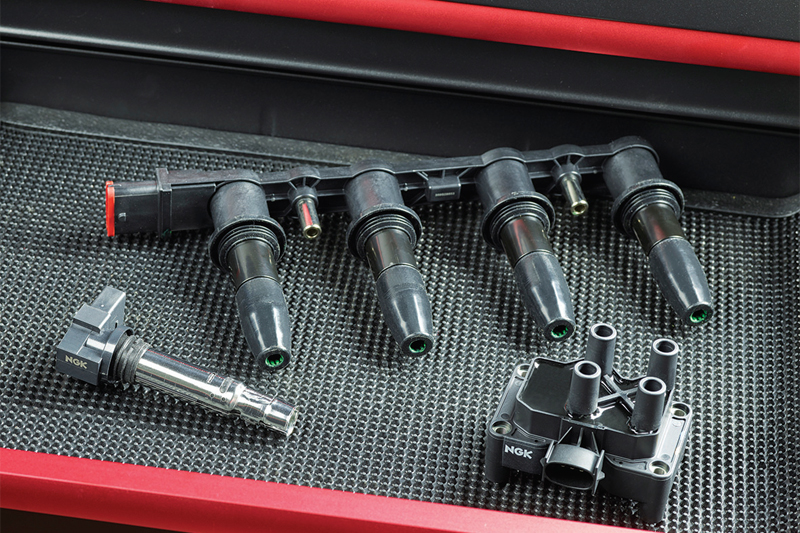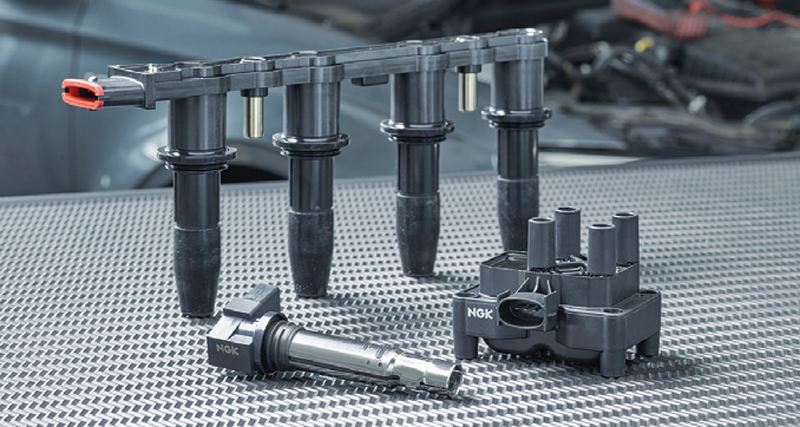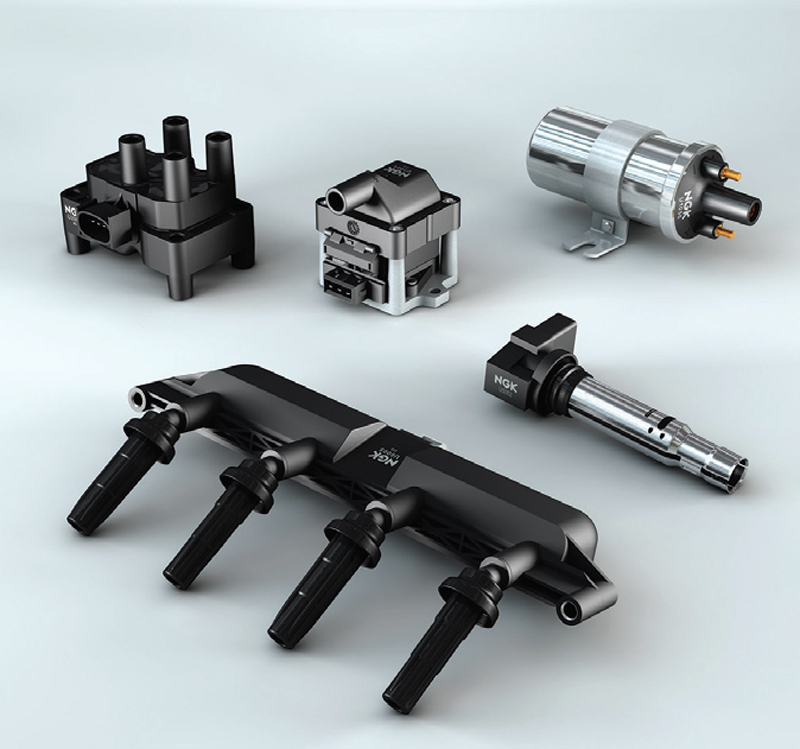
Ron Merralls, NGK Spark Plugs UK’s Assistant Technical Manager, has spent 18 years at the company. In this time, he has been involved in cataloguing, new product range introductions, and pre and aftersales technical support. PMF spoke with Ron to discuss all things ignition coils.
Q. How important are ignition coils in the ignition system?
Ron Merralls (RM): An ignition coil is necessary for all petrol combustion engines. The ‘trembler coil’, one of the first ignition coil designs, first made spark ignition engines possible. It produced a series of high voltage pulses creating multiple sparks. Modern day coils create a precisely timed single spark.
Q. With emissions legislation becoming increasingly strict, how has this affected the role of ignition coils?
RM: Evolving emissions standards challenge vehicle and component manufacturers. The trend for smaller turbo charged engines and other changes to engine designs invariably necessitate ignition coil proportions becoming more compact, whilst increasing spark generation time and energy.

Q. Similarly, has the production process of ignition coils been affected with these changes?
RM: A coil is no longer required to produce just 10,000V – some modern vehicles command in excess of 30,000V. Ignition coils are often mounted in areas of extreme fluctuations in temperature. Coils are now often subjected to higher thermal loads and vibrations, causing greater challenges to maintaining coil reliability. Manufacturing processes, as well as the materials and components used, must meet very high standards to avoid failures. Primary and secondary coil copper wire requires high-quality pliable shellac insulation, resistant to cracking when wound. Windings need to be uniform, with minimal voids. Casings require filling/sealing with potting compound which has some pliability and high insulation properties, and can withstand extreme temperature changes. This compound needs to be vacuum filled to eliminate air pockets, which would otherwise lead to future failures.
Q. What makes NGK’s ignition coils stand out from the crowd?
RM: Our ignition coils boast the best quality production methods, selection of premium materials, strict quality processes from the initial design stage to assembly, and testing, to ensure long life. Something that repairers quickly become aware of is that certain models become ‘known’ to suffer from coil failures. This shows us that even at VM level, the component is stressed. Robust testing carried out prior to launching our ignition coils ensures that the item often exceeds the VM’s OE item.
Quality processes also encompass the packaging. Attention to detail means that they are safe in transit. To ensure correct fit first time, NGK packaging includes a label with a schematic diagram of the coil – so selection can be verified without removal from the box.

Q. What advice would you give motor factors when it comes to which ignition coils to stock?
RM: Motor factors are advised not to compromise when it comes to stocking quality ignition coils. Savings made on materials used or production costs often means a greater possibility of premature failure, leading to disgruntled repairers and end users. On vehicles with individual coils, although it’s tempting to replace the one failed coil, it’s worth replacing the set, as it isn’t unusual for another to follow. Some coil failures are linked to lack of maintenance. For instance, worn spark plugs can place a significantly greater load on an ignition system. It’s also worth considering the condition of the spark plugs and replacing them if necessary.







